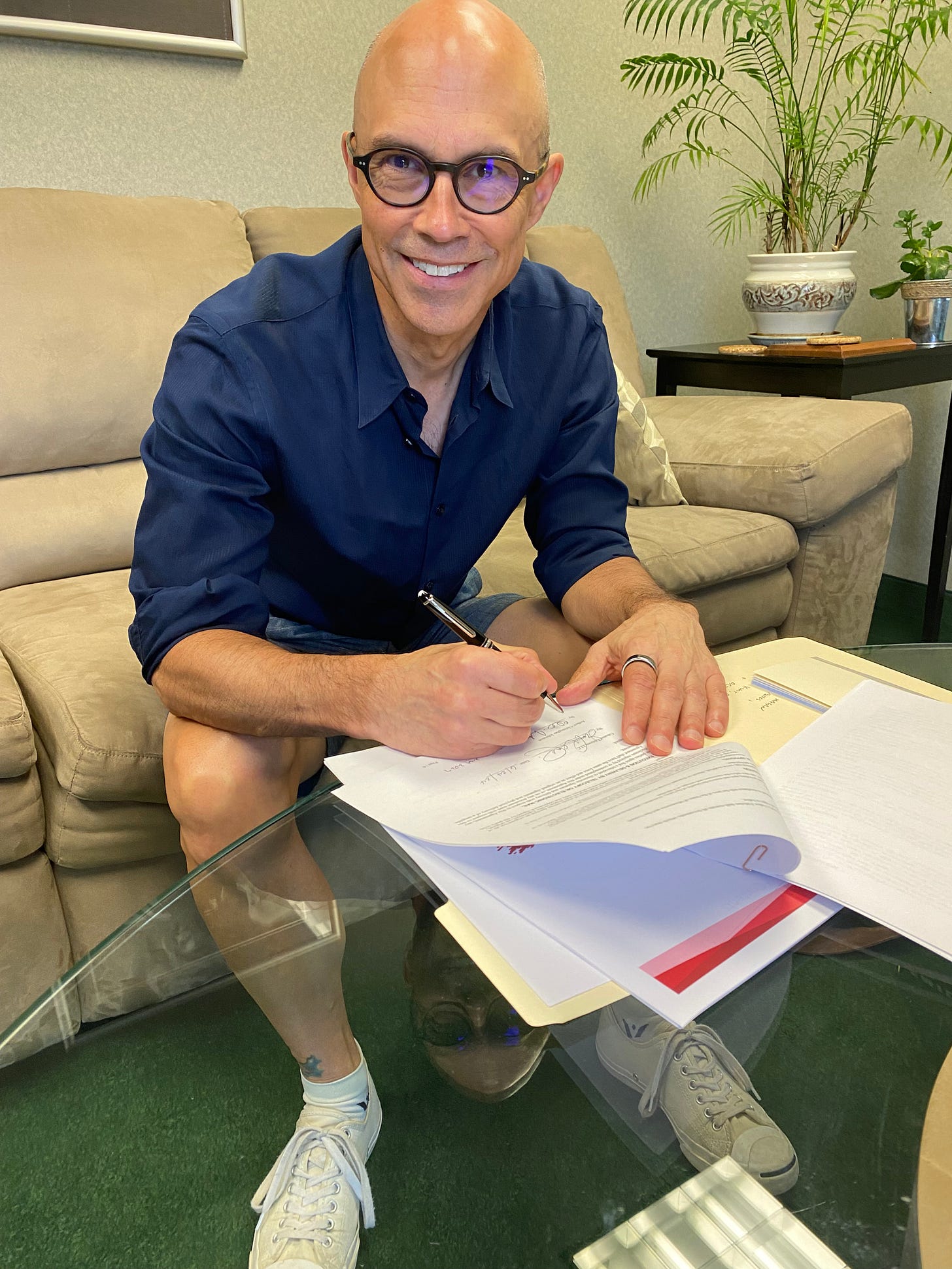From Management Consultant to Writer in Thirty Short Years
On Reaching Escape Velocity from Corporate America
Two years ago this week, I abandoned a thirty-year engineering and management consulting career. For two years before that, I’d been plotting how and when to leave. I was in the restructuring and revision phase with my first novel, and I was frustrated at how long it was taking. Quitting would allow me to devote all my attention to it.
I’d met with financial and health planners to formulate a post-employment living strategy. The earliest date I could leave was in May 2022, when I turned fifty-nine and a half. After that date, I’d be able to take distributions from my retirement accounts without penalty.
I had no idea that I’d put the plan into effect so soon after completing it.
I’d just finished an endless Zoom meeting with a client’s project team. The senior partner from my firm who oversaw the project had screwed my team—garbling task commitments that I’d made and making promises my team couldn’t keep. I’d bitten my tongue and kept quiet about his stupidity, because to correct him in front of the client team would have undermined his authority. But I had to do something. He had a habit of making impossible demands of consultants to avoid conflicts with the client. To allow this pattern to continue would damage my team’s reputation of delivering what they promised, on time and within budget.
I had to confront him.
I walked down to the lakeshore near my house to consider my approach. It usually calmed me to look at the water, listen to the birds, and feel the wind and sun on my face, as my subconscious would work on the problem. But on this day, the lake didn’t calm me one bit. Instead, a parade of frustrations marched through my mind. Three weeks of travel a month. Endless status meetings. Ridiculous time demands. Pressure to pursue partnership. The pandemic. It had sucked the life out of me.
The internal pressure to leave had been building for years. Maybe a lifetime. As a young man, I did what American culture encourages people to do—ignore creative pursuits and get a practical education. I worked to help pay for college. I got an engineering degree. I didn’t want to live in a dingy New York apartment and bang away at a typewriter on stories no one would read. Instead, I worked for blue-chip companies, designing products and managing factories. I moved on to management consulting, where I travelled the world to help manufacturing and distribution businesses improve their operations. I learned financial management and built an endowment to support myself someday as a writer.
In the meantime, I practiced my craft as much as possible. At a minimum, I wrote in my journal every morning. If a fiction class at The Loft fit my schedule, I signed up. My heavy travel schedule set me up to write travel pieces, so I sought out opportunities to write destination guides and reviews. In airport lounges, on flights, and after work in hotel rooms, I’d take a few minutes to write a couple sentences or a paragraph, and when I got home, I’d arrange them into coherent, polished prose. I started to get paid for writing.
In 2009, for a short-fiction class at The Loft, I wrote a short story about two brothers meeting in a bar after a long estrangement. “You’re trying to put ten pounds of shit into a five-pound bag,” the instructor said. “This should be a novel.”
Thus began my novel. My ten-pound bag.
I tried several times to get started. I contacted established writers with offers to pay if they’d help me get going. They all said no. Get a creative writing MFA? No thanks! I’d already done graduate school in oceanographic engineering and didn’t want to repeat the experience. Going to sea and building stuff was great; taking tests and writing academic papers was not.
One evening, on public radio, I listened to an episode of The Moth. At the end of the program, they said they were taking pitches for a Mainstage event in Minneapolis. Call the pitch line and sell your idea in three minutes or less. I wrote out my pitch and called in. Three days later, on a business trip to Toronto, I got a call from a producer in New York, saying they wanted me to do my full story on a conference call. I wrote a script, memorized it, and did it for the producers, and they gave me a spot on the show. (I’ll save the story I told for a later post.) Getting on the show gave me a confidence boost. I could write the novel—if I could find the right kind of help.
Three years and several false starts later, I heard about a new program at The Loft called the Novel Writing Project. I was determined to get in. It felt like my last chance to get the novel done. At the time, I was working on what turned out to be my one and only Minneapolis consulting project. On the day registration was to open, I was sitting in a client’s conference room with the website open, ready to pounce, as if I were buying concert tickets. The form opened, I filled it out, hit send – and nothing. It timed out. I tried again. Same thing. I banged on the keyboard. There was no way I’d be stopped from getting into the class by a failed website.
I got in my car and sped across the 10th Avenue bridge – amazed that I didn’t get a ticket. I ran up the spiral staircase in Open Book to The Loft’s office, where I burst in on the receptionist and told her I wanted to register for the Novel Writing Project. She deadpanned that it was full. It had filled seconds after the website opened. I asked to be put on the waitlist. She said there wasn’t one. Well, start one, I demanded. She did, and long story short, I got in—and wrote the first draft of my novel.
By 2022, I was spinning my wheels trying to restructure and edit the thing…until that day when I found myself at the beach, staring blankly at a beautiful lake, unable to stop obsessing about a wretchedly dysfunctional Zoom meeting. I went back to the house angrier and more frustrated than when I’d left.
I picked up the phone, called the senior partner, and told him he couldn’t distort my commitments just to appease the client. He angrily denied doing so. I said he absolutely had done so. I recounted the commitment I’d made in the meeting, and how he’d compressed it when confirming it with the client. He then claimed to have a hearing disability, which I’d never heard about in my five years working with him, and which in any case shouldn’t have kept him from understanding my attempts to correct him via text during the meeting.
I told him I needed to consider my options and determine whether I wanted to continue working with him and the firm.
That evening, I considered the implications of leaving. Then I considered giving notice. And I felt a wave of relief wash over me.
I want to be done. Now. Today. I have too many things to do in life to waste it on activity I don’t care about. I’m 59 years old, and the clock is ticking.
The firm had no obligation to give me notice if they fired me, according to employment at will, and I had no obligation to give them notice if I left. I slept on it. The next morning, I called the senior partner and told him I was done—that day, that moment, no notice.
Leaving was one of the best decisions of my life. I’m not proud of how I left—without grace or dignity—but really, who cares? I got out! I can now call myself a writer. Soon I’ll be an author1. And every morning I walk to the lakeshore, and look at the water, listen to the birds, and feel the wind and sun on my face.
My debut novel Where You Come From Is Gone will be published by Calumet Editions in Spring 2025




